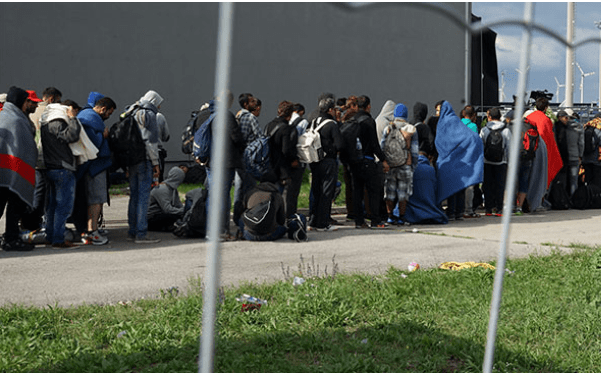Nine MEPs from the EP’s Civil Liberties Committee are travelling to the Canary Island to gather first-hand information on the challenges that arrivals from the West African route create for migrant reception centres and authorities, and explore ways to support the affected regions. The delegation will meet with representatives of local, regional and national administrations, […]
Read MoreProposal for the implementation of the “safe third country” concept
The Commission proposes to facilitate the implementation of the safe third country concept. The Commission has proposed some rules that will facilitate the implementation by Member States of the safe third country concept. This will speed up asylum processes and reduce pressure on asylum systems, while preserving legal safeguards for applicants and ensuring respect for […]
Read MoreCommission adds €3 billion for the Pact on Migration and Ukrainian refugees.
The Commission has adopted a decision to provide an additional €3 billion to support Member States with the implementation of the Pact on Migration and Asylum and to host refugees from Ukraine. President von der Leyen announced this extra support in last May 9’s press conference with Chancellor Merz. The additional funding comes from the […]
Read MoreNew changes in safe countries of origin according to Pact on Migration and Asylum
On 16 April, the Commission propossed to accelerate the implementation of certain aspects of the Pact on Migration and Asylum, adopted last year and due to enter into application in June 2026. The Commission is proposing to frontload two key elements of the Asylum Procedure Regulation with the aim of supporting Member States to process asylum […]
Read MoreMigration: Commission proposes a new approach to returns
Return rates across the EU stand today at around 20 percent. Persons ordered to leave an EU country frequently escape the authorities. The European Commission has now proposed to help EU countries increase return rates while fully respecting fundamental rights by establishing a common EU return system. This will complement the EU Pact on Migration […]
Read MoreCouncil establishes position for the progressive launch of a new digital border management system
The Council today set out a general approach on a Regulation that would allow Member States to gradually introduce, over a period of six months, the digital Entry/Exit System (EES) for border management. The Regulation allows Member States to start taking advantage of the system and gives border authorities and the transport sector more time […]
Read MoreMigrant smuggling: member states reach agreement on criminal law
Today the Council agreed its position on an EU law on preventing and countering migrant smuggling. The objective of this proposal is to bring member states’ criminal law closer together on issues such as the definition and sanctioning of migrant smuggling. The position agreed today will serve as the basis for upcoming negotiations with the […]
Read More69 270 asylum applications in August 2024
In August 2024, 69 270 first-time asylum applicants (non-EU citizens) applied for international protection in EU countries, a fall of almost a quarter (24.8%) compared with August 2023 (92 055). There were also 6 285 subsequent applicants, representing a 4.6% increase compared with August 2023 (6 010). This information comes from the monthly asylum data published by Eurostat today. The article presents a handful of findings from the […]
Read MoreRewriting Europe’s migration stories
The EU-funded BRIDGES project explored how highly charged narratives around migration shape public perceptions and policy, and set out to replace divisive messaging with narratives based on empathy and evidence. Migration is a deeply politicised issue across the EU. Fears about the erosion of national identity and a perceived loss of control over migration have […]
Read More







